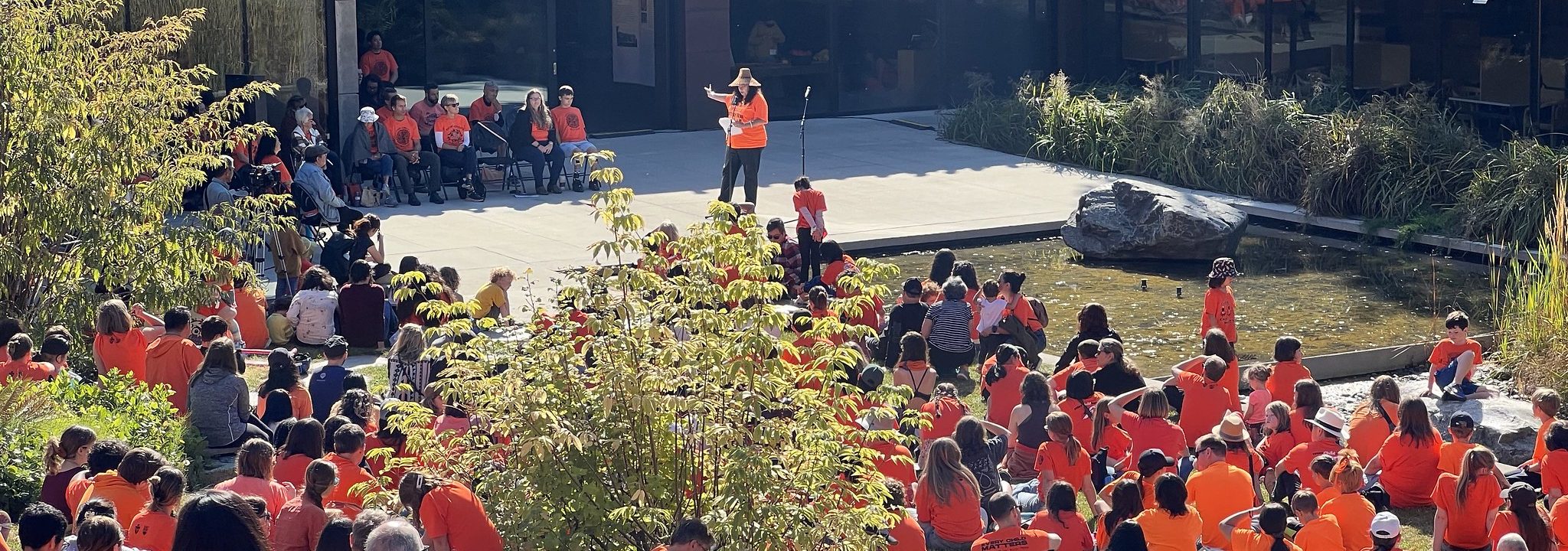
Stage 1: Weaving Relations
Stage 1 of IDEAL is to complete the self-led Canvas course Weaving Relations which introduces and explores Indigenous histories, people, and contexts, as well as settler colonialism in Canada, through the lens of Indigenous-Canadian relationships. Once participants have completed Weaving Relations they are encouraged to sign up for Stage 2 of the IDEAL program, which dives deeper into topics related to colonialism through engagement with land-based and experiential teachings.

Stage 2: Digging Deeper
In Stage 2 of the IDEAL program, participants will explore a variety of learning opportunities, including Speaker Series, guided walks, and engagement opportunities, and then have the opportunity to engage in reflection using journaling prompts via Canvas and participating in facilitated sharing circles. These pedagogical methods are utilized to develop and deepen participants learning; employing peer-based learning allows the participants to have enriched, dialogical and reflective opportunities using decolonialized methodologies.



The goal of Stage 2 is to provide a gradual scaffolding of experiential learning opportunities with a cohort of peers from cross disciplines, strengthening relational networks and weaving together a deeper understanding of Indigenous peoples, history, and issues to better equip participants when they seek to engage with Indigenous communities.
Stage 2 is designed to be a year-long commitment. Participants choose from 10 curated experiences and attend the corresponding Sharing Circle. Participants need to complete 7 pairings to be eligible to move on to Stage 3. Experiences also include attending engagement opportunities such as Orange Shirt Day, Coffee and Care dialogue sessions, and viewing pre-recorded Speaker Series and Panels, if the in-person opportunity does not allow for attendance. Participants also have the ability to experience and share about an opportunity (limit of two) outside those listed.
Enrolment for Stage 2 is welcome at any time.
Stage 3: Relating Wider
Stage 3 allows participants to apply the knowledge they have gained in Stages 1 and 2 to their personal approaches to decoloniality, reconciliation, and Indigenization, through engagement with land-based learning, reflective cohorts, and sharing triads. Participants will enrol in and complete the self-directed course Facing Human Wrongs (contained within Stage 3) to deepen their learnings from Stages 1 and 2, as well as to inform their engagement with the Reflection and Sharing Circles in Stage 3.
Enrolment is now open for the January – June 2025 Stage 3 cohort.


IDEAL Newsletter
Sign up for the IDEAL newsletter to receive monthly program updates and resources, including:
- A Halq’eméylem word of the month
- IDEAL news and events
- Indigenous book, movie, and podcast recommendations
- Indigenous pathways to mental wellness
A Message from the Facilitators

We hope that this certificate program helps prepare settler participants to examine their own worldviews and put in the work necessary to be in a better place when they do go out and engage with Indigenous peoples and communities. By challenging our understandings of colonialism, working to see outside our current systems and structures, participants should develop a deeper understanding of what decolonization means and how we can all work towards a future of meaningful reconciliation.
Please contact Dana-Lyn Mackenzie, Senior Manager, EDI & Indigeneity at danalyn.mackenzie@ubc.ca for enquiries or further information.
